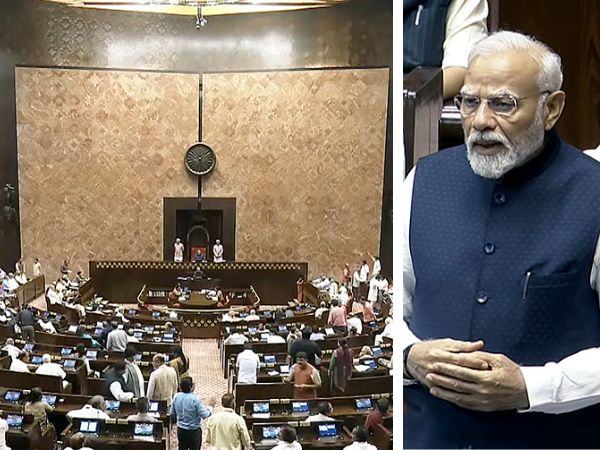- Monday, June 30, 2025
On September 22, the bill was unanimously passed by the Upper House of the parliament, a day after it was backed in the Lower House.

By: Shubham Ghosh
THE Indian parliament took a historic step on Thursday (21) when the much-debated women’s reservation bill was passed by the Rajya Sabha or Upper House. The bill, officially named Nari Shakti Vandan Adhiniyam, was backed by 215 parliamentarians in the house while there was no opposition. The bill will now head for the president’s assent to make 33 per cent reservation for women in the Lok Sabha or Lower House of the parliament and state assemblies official.
Multiple attempts had been taken to make the bill a reality in the past many decades but none of them could succeed due to roadblocks.
A defining moment in our nation's democratic journey! Congratulations to 140 crore Indians.
I thank all the Rajya Sabha MPs who voted for the Nari Shakti Vandan Adhiniyam. Such unanimous support is indeed gladdening.
With the passage of the Nari Shakti Vandan Adhiniyam in…
— Narendra Modi (@narendramodi) September 21, 2023
On Wednesday (20), the bill received an overwhelming support of 454 MPs while two voted against it.
Prime minister Narendra Modi, a member of the Lok Sabha, was present in the Rajya Sabha for the voting and passing of the bill on Thursday. Thanking the parliamentarians for their support, he said, “The debates were very successful. In the future as well, this debate will help us all. Thank everyone for their support to the bill. The spirit will give birth to new self-esteem among Indians”.
In a post on X, he wrote, “A defining moment in our nation’s democratic journey! Congratulations to 140 crore Indians. I thank all the Rajya Sabha MPs who voted for the Nari Shakti Vandan Adhiniyam. Such unanimous support is indeed gladdening.
With the passage of the Nari Shakti Vandan Adhiniyam in Parliament, we usher in an era of stronger representation and empowerment for the women of India. This is not merely a legislation; it is a tribute to the countless women who have made our nation. India has been enriched by their resilience and contributions. As we celebrate today, we are reminded of the strength, courage, and indomitable spirit of all the women of our nation. This historic step is a commitment to ensuring their voices are heard even more effectively.”
However, the voting over the bill was preceded by an intense debate in the upper chamber, just like what had happened the day before in the lower chamber. The debate was over the timeline of the implementation, which can take place only after the census and delimitation which will delay it by another six years. The opposition INDIA bloc wanted immediate implementation.
Among the opposition leaders who criticised the Modi government over the delay were Indian National Congress president Mallikarjun Kharge; Trinamool Congress leader Derek O’Brien and former Indian minister and Congress leader Kapil Sibal.
Finance minister Nirmala Sitharaman, one of the prominent women leaders of Modi’s Bharatiya Janata Party (BJP), said during the debate that the government called a special session to give a noble start to the country’s new parliament building through the historic bill. A member of the Rajya Sabha, she said the BJP doesn’t play politics in matters related to women.
On Wednesday, home minister Amit Shah told the opposition in the Lok Sabha that the Modi government feels the processes of census and delimitation should be transparent and perfectly carried out.
The Congress had also demanded Other Backward Classes (OBC) quota within the reservation for women parliamentarians but BJP chief JP Nadda slammed it saying it was the BJP-led National Democratic Alliance that has given India its first OBC prime minister (Modi himself).
After the bill’s implementation, the number of women members in the Lok Sabha will grow from the current 82 to 181.